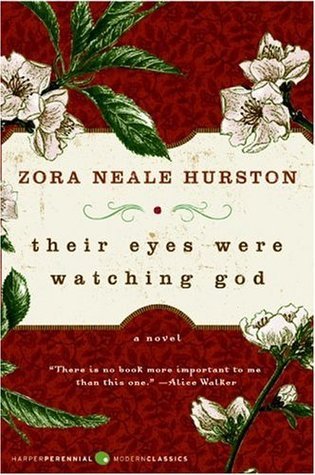About the Author
byAbout the Author Zora Neale Hurston (1891–1960) was a groundbreaking writer, anthropologist, and folklorist whose work significantly impacted both American literature and cultural studies. Throughout her career, Hurston explored the intricacies of African American life and culture, combining both fictional narratives and factual anthropological studies. She is best known for her profound exploration of Black identity, particularly in her acclaimed works such as Jonah’s Gourd Vine, Mules and Men, Seraph on the Suwanee, Moses, Man of the Mountain, and Every Tongue Got to Confess. However, her most celebrated work remains Their Eyes Were Watching God, which remains a cornerstone of African American literature and offers deep insights into the complexities of race, gender, and personal identity.
Hurston’s writings are marked by a keen understanding of African American folklore, storytelling traditions, and the lives of Black individuals, especially women, during the early 20th century. Her use of vivid dialects and her ability to weave complex narratives about love, loss, and self-discovery have earned her lasting recognition. Her storytelling often focuses on the struggles and triumphs of Black characters, highlighting their strength, resilience, and determination. Through her work, Hurston was able to provide a window into the lives of Black Americans, capturing their experiences with authenticity and depth. The central themes of her novels frequently explore personal empowerment, identity formation, and the quest for freedom, with a particular focus on the lives of Black women, whose voices had been silenced in much of the literary canon.
One of Hurston’s most important contributions to literature is her 1937 novel, Their Eyes Were Watching God, which tells the story of Janie Crawford, a Black woman searching for her own voice amid societal expectations and personal hardships. The novel explores Janie’s journey to self-discovery, highlighting her relationships with three very different men and her desire for autonomy in a world where women, particularly Black women, are expected to remain in traditional roles. Set in the rural South, Hurston’s novel delves into the complex themes of love, independence, and the struggle for personal identity. Through Janie, Hurston crafts a powerful story about the strength of Black womanhood, resilience in the face of oppression, and the courage required to follow one’s own path despite the societal norms trying to suppress it.
In addition to her literary work, Hurston played a crucial role in the Harlem Renaissance, contributing to a cultural movement that celebrated African American art, music, and literature. She was a central figure during this time, advocating for the representation of Black culture in the arts and pushing for African American voices to be heard in mainstream society. Hurston’s writings were influenced by her deep connection to the Black community and her desire to preserve and showcase the oral traditions, folklore, and culture of African Americans. Despite her financial struggles and lack of recognition during her lifetime, Hurston’s legacy has grown over the years. Modern scholars and readers now recognize her as one of the most influential writers of the 20th century, with her works continuing to inspire and educate readers about the complex experiences of Black Americans.
Zora Neale Hurston’s work remains an enduring legacy that speaks to the resilience and strength of Black women. Her novels and anthropological studies continue to provide crucial insights into the cultural, social, and emotional realities of Black life in America. By offering rich and complex portrayals of Black characters, especially Black women, Hurston’s work remains vital in contemporary conversations about race, identity, and gender. She crafted narratives that transcended time and place, crafting narratives that connect with audiences from diverse backgrounds. Today, Hurston’s writings serve as both a historical record and an ongoing source of inspiration, urging readers to question societal expectations, embrace personal identity, and celebrate the strength found within.

